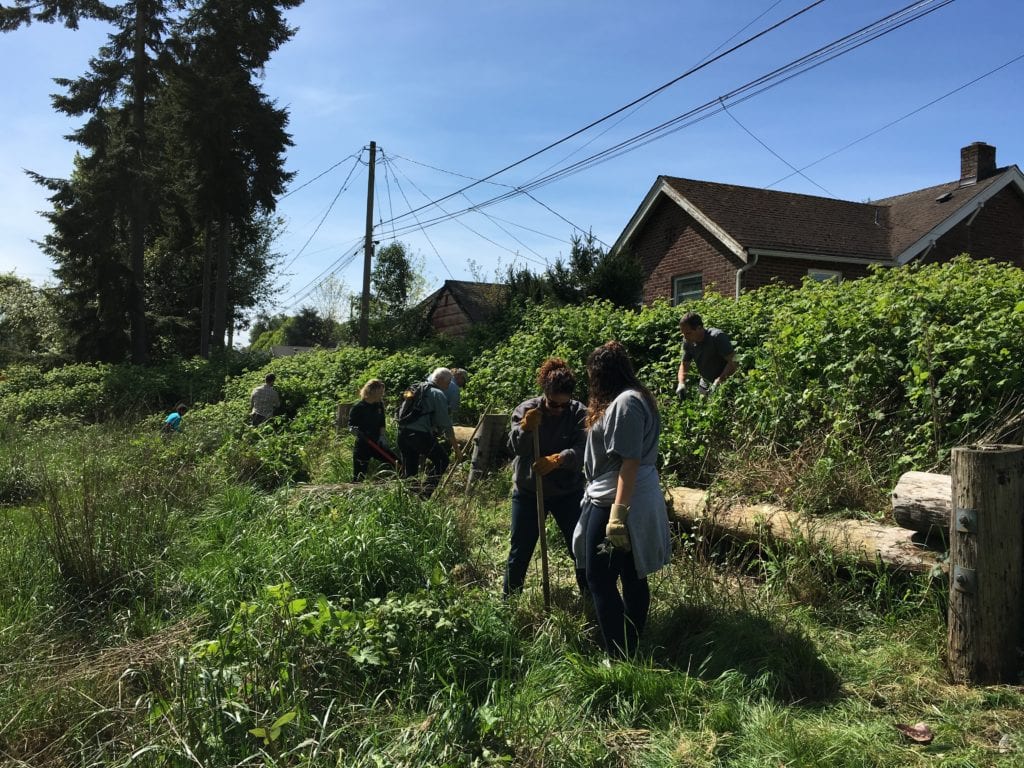 Seattle City Light, Delridge Neighborhoods Development Association, and Seattle Parks and Recreation are transforming a former Delridge substation into community green space with a community garden, wetland, and educational programs for students and adults on growing food and environmental stewardship.
Seattle City Light, Delridge Neighborhoods Development Association, and Seattle Parks and Recreation are transforming a former Delridge substation into community green space with a community garden, wetland, and educational programs for students and adults on growing food and environmental stewardship. 
Volunteers remove blackberry plants from the former Delridge Substation property during the 2016 Duwamish Alive event.
Seattle City Light, Delridge Neighborhoods Development Association, and Seattle Parks and Recreation are transforming a former Delridge substation into community green space with a community garden, wetland, and educational programs for students and adults on growing food and environmental stewardship.
“Delridge is a dynamic and diverse neighborhood that feels the pressure of urbanization. Longfellow Creek floods and salmon die from polluted stormwater runoff. What’s more we’re in a food desert with demonstrated lack of access to fresh food,” said Willard Brown, director of housing and environmental programs for the development association. “The Delridge Wetlands and Stewardship Project is our chance to help the neighborhood and provide things that the community wants and needs.”
Delridge Neighborhoods Development Association began working with Seattle City Light in 2015 when the 20,000-square-foot parcel was deemed surplus property to create a place that would provide access to fresh food, preserve a wetland, help control seasonal flooding and improve water quality in Longfellow Creek. Delridge Neighborhoods Development Association secured grant funding to purchase the property at fair market value for $80,000 and for design and restoration of the wetland. Seattle Parks and Recreation will own the property. Delridge Neighborhoods Development Association will manage the site.
City Light laid the groundwork for the future community greenspace by removing contaminated soils. The utility also will remove the upper portions of six hazardous, diseased cottonwood trees in the 4,000-square-foot wetlands as part of the condition of transfer to Seattle Parks and Recreation. The cottonwoods will be converted to snags for wildlife habitat.
Brown is leading the charge for the property’s transformation and is bringing together the organizations that will transform the site. Students from K-8 STEM School at Louisa Boren, located two blocks from the site, and The Nature Consortium are working in the wetlands, removing invasive weeds, planting trees and learning firsthand how to care for the earth. A partnership with City Fruit and Tilth Alliance will bring a community orchard and garden to the former substation site. The Pomegranate Center, Outdoor Classroom Design and Gaynor Inc. are onboard to develop the site plan with community input this year.